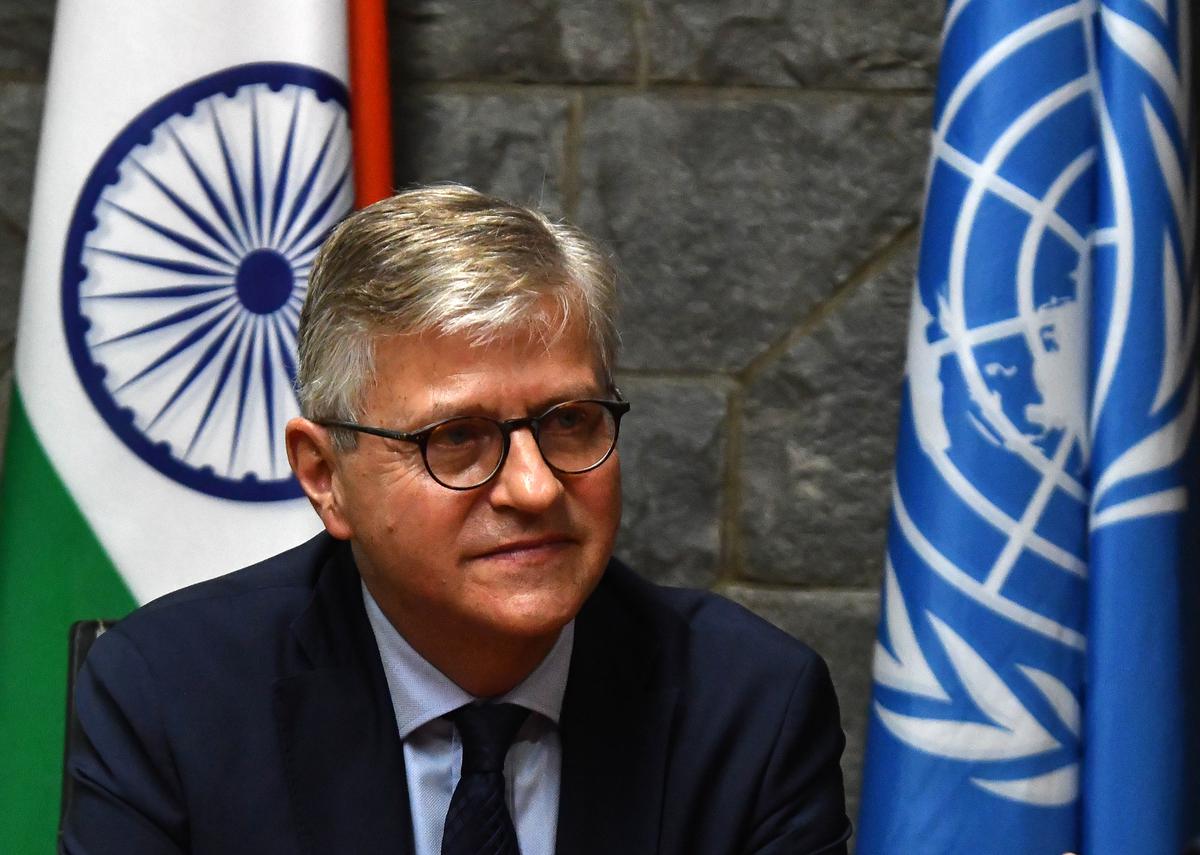
Need to ensure that our peacekeepers are better equipped, trained and prepared, says U.N. official
The Hindu
Amid DRC violence where two Indian soldiers were killed, UN Undersecretary-General Lacroix says more ‘robust’ mandates are required
A spate of attacks on United Nations Peacekeepers in the Democratic Republic of Congo (DRC) amid anti-U.N. protests in the last few weeks has left two Indian soldiers from BSF dead. The issues of growing fatalities and the lack of clear mandates for the “blue helmets” were at the top of the agenda as U.N. Peacekeeping Chief Jean-PierreLacroix held a meeting in Delhi last week as part of a tour to India, Pakistan, the UAE and Japan. Speaking to The Hindu, Mr. Lacroix said soldiers need a more “robust” or proactive mandate, better equipment to deal with deteriorating conditions in countries where U.N. Peacekeepers are posted:
Many of our peacekeeping operations are in an environment that is deteriorating, both from the point of view of the political environment, but also the security environment. And I think that’s because the political efforts to solve conflict are not moving forward in most of these situations, and the threats against our peacekeepers, against the population we’re protecting are increasing. In many of our operations, particularly the big operations in Africa, we are facing groups that are either terrorist groups or criminal groups and they’re not interested in peace, they’re not interested in stability, they’re interested in chaos. That’s why our peacekeepers are facing threats in a way that is really, quite increased. And it means that we have to adapt, so as to better protect our peacekeepers, but also better protect the population we are serving. And I think this is an important theme of discussions with countries such as India and other countries that are providing high numbers of peacekeepers.
Well, I think there has to be a geographical balance in our peacekeeping operations and indeed, we are trying to get as much of a variety of countries contributing to peacekeeping as possible. I do agree that troop and police contributing countries need to be very much in the loop and involved in the process of making decisions on peacekeeping. The ultimate decision-making process is at the U.N. Security Council, and whether the Security Council needs to be reformed or not is an issue for our member-states to decide, not for the U.N. Secretariat.
I totally understand the concerns, especially when it comes to the number of fatalities in peacekeeping. However, we have been making a lot of efforts to improve the geographical diversity of our troop and police contributing countries. We all need to sort of step up our efforts to make sure that our peacekeepers are better equipped, trained and prepared. Peacekeeping has its limitations. It’s not war. It’s not peace enforcement. But we have mandates to protect civilians, and we have to have “robust” mandates, which require our peacekeepers to be proactive and to be able to go after all these armed groups. So it requires a robust posture, a robust mindset.
The initiative by India is absolutely critical, because I think it was the first time that the issue of impunity and accountability was raised as a priority within the Security Council. Crimes against peacekeepers can constitute war crimes. Eventually, with sustained efforts and determination, I think we can eventually achieve accountability. So it’s important to stay the course, however frustrating that can be.
This is a welcome initiative by India. There could be an initiative at this current General Assembly that would accelerate things and we would be definitely be supportive because it is only fair that all these peacekeepers who have lost their lives under a blue flag should be remembered and honoured.





















 Run 3 Space | Play Space Running Game
Run 3 Space | Play Space Running Game Traffic Jam 3D | Online Racing Game
Traffic Jam 3D | Online Racing Game Duck Hunt | Play Old Classic Game
Duck Hunt | Play Old Classic Game











